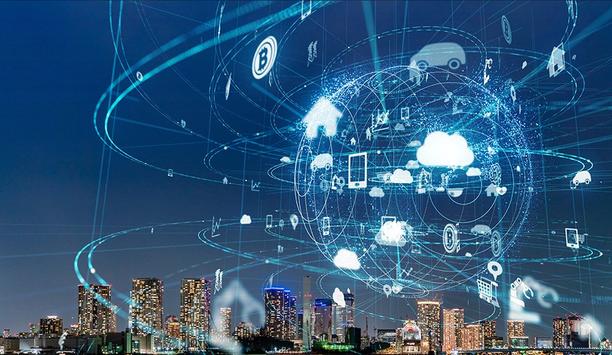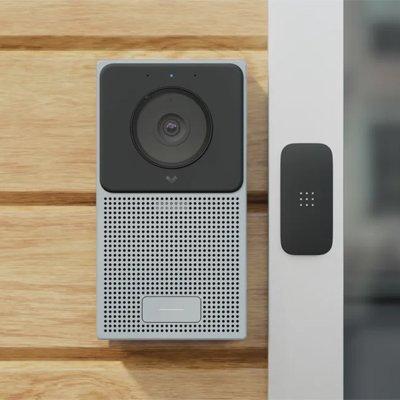 |
| The Eiffel tower illuminated with colours of the French national flag on November 16 |
Let’s say it up front: The physical security sector has limited solutions to address events like those in Paris on the 13th November. The series of coordinated terrorist attacks consisted of mass shootings, suicide bombings, and hostage-taking in which 129 people died. Among the dead were 89 people at the Bataclan theatre where American band Eagles of Death Metal was playing at the time to an audience of around 1,500.
But we can take our cue from President Obama, who has just announced that the United States will not only share more information with its allies but will do so more quickly and across more channels.
If anything can be learned from Friday 13th it’s that we need to distribute data of every kind (video footage from both public and private sectors, access control reports, and biometrics) across the widest possible law enforcement network in a collaborative manner. We already have physical security information management (PSIM), and we are making strides towards smart cities, the Internet of Things and Big Data that is easily retrieved and analysed. Public perception may be that we are already more cohesive than we actually are.
Vigilant guarding and biometric scrutiny
Three of the terrorists detonated suicide vests either on the perimeter or very close to the 80,000-capacity Stade de France in the north of the city. (A stadium wall is currently pockmarked with the imprint of ball bearings.)
Whatever our technological advances, it should be remembered that one of the terrorists seeking entry to the game was detected by a vigilant steward conducting a body frisk. Manned guarding of the highest order is perhaps still our greatest safeguard and should never be underestimated by legislators or eclipsed by technology companies with large marketing budgets. A terrorist scare at the German team’s hotel on the same morning occurred in error but was the result of staff showing diligence and alertness.
Manned guarding of the highest |
The possible consequences of reports that a forged Syrian passport was found at the sports stadium are enormous. Still more incendiary is the probability that the jihadist entered Europe from Syria and used the forged ID to buy ferry tickets while posing as a refugee. But all this is for the politicians. In the security community, our responsibility is to ensure that biometric scrutiny of passports at a small island off the Greek coast is as rigorous and sophisticated as checking at airports such as Ben Gurion and John F. Kennedy International.
Expectations of technology
We should not only avoid apportioning blame but are duty-bound to ensure that the public has realistic expectations of our technology. Anne Hidalgo, the mayor of Paris, could install as many 16-megapixel cameras in the Place de la Concorde as there are figures around the famous fountains; the city would still not be protected even against known suspects since automated facial recognition remains the stuff of science fiction.
Saying this, the attacks can only result in the installation of more cameras and greater public acceptance of them. To date, cameras in Paris have been used more for enforcement of traffic regulations than surveillance of pedestrians, with sensitivity about civil liberties being acute and entrenched. (The French have also tended to be sceptical about the effectiveness of video analytics.)
Protecting vulnerable venues and events
French security administrators should focus on known future challenges and not impute failings to specific policing or civil service sectors either in France or neighbouring countries. The most immediate challenge is next year’s European football championships (UEFA Euro 2016) which will be held in 10 French cities with the final (inevitably) slated for the Stade de France. Security in stadiums (as was shown earlier this month) generally works well, and the risk is more to street gatherings and celebrations where there are no fixed entrance points. Of course Euro 2016 will see large informal gatherings of fans in public squares prior to games.
 |
| Crowds lit candles outside the Bataclan theatre in tribute to the victims |
Concert halls such as the Bataclan (where there is ticketing but no turnstiles) are likely to prove vulnerable, and it was here that the terrorists proved most lethal, killing over 89 people with automatic rifles and explosives. An arts venue can’t be a fortress, but we are surely close to a situation where attending any event in a large venue will involve producing photographic ID. And would it be such an enormous infringement of my human rights that the credit card with which I bought a ticket for a concert this morning should be linked to my passport number?
Need for communication and shared data
There is surely scope for security authorities to work with Twitter in order to create officially sanctioned hashtags in emergency situations. With the Paris transport system frozen, much was achieved with an unofficial #PorteOuverte hashtag as inner-city residents simply opened their doors to strangers and in many cases almost literally pulled people out of harm’s way into their homes.
None of this came out of a clear blue sky. François Heisbourg, a French security expert from the International Institute for Strategic Studies, gave an immediate interview saying: “We were expecting something big but not like this and not this sophisticated. The background noise [‘chatter’] was getting very disturbing.” But chatter rarely gives specifics, and the threat could have been to any part of mainland Europe. As I write, the focus has turned to Belgium and an impoverished suburb of Brussels which may now be the hideout of the one gunman to survive the shootings. The search for Salah Abdeslam is probably the biggest manhunt in European history and is certainly involving the most intensive use of technology.
Just as the threat is evolving, with jihadists showing an increasing level of preparation and determination to inflict mass casualties in coordinated actions, the physical security sector needs to communicate with police and legislators to illustrate the sophistication of cameras, access control and perimeter protection (which can now be deployed effectively on a temporary basis for one-off events.) But the greatest mistake (and irresponsible conduct) in the face of continuing threats would be for security vendors to oversell their offerings.











































